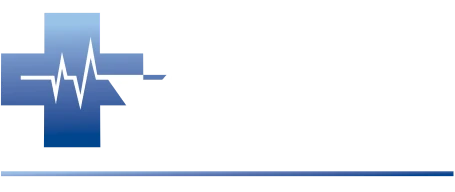
Healthcare Technology & IT Management 101
Defining Healthcare Technology
Healthcare Technology, or Health Information Technology (HIT), encompasses a wide array of technologies designed to support healthcare organizations. From medical devices to AI, cloud computing, and telemedicine, these innovations play a pivotal role in shaping the present and future of healthcare.
HIT is broad; covering the hardware, software, and systems used in the input, transmission, extraction, and analysis of information in the healthcare sector. Its end-users include patients, physicians, healthcare providers, researchers, healthcare insurance companies, public health agencies, regulatory bodies, pharmaceutical corporations, and various levels of government.
The technology underlying HIT is no small feat: it’s critical at a societal scale, influencing the delivery and advancement of healthcare.
All of the innovative leaps in healthcare technology have made dramatic improvements and expanded options for medical treatments... but it’s also transformed how clinicians perform their jobs.
Types of Healthcare Software
Electronic Medical Records
Picture Archiving and Communication Systems (PACS)
Radiology Information Systems (RIS)
Digital Imaging and Communications in Medicine (DICOM)
Scheduling Software
Medical Billing Software
Patient Engagement Software
Telemedicine Systems
Diagnostic Software
Benefits of Healthcare Information Technology
Embracing technology in healthcare brings a host of benefits. The digitization of healthcare data not only enhances accessibility, but also eliminates the challenges associated with uninterpretable, illegible, or incomplete paper records. HIT goes beyond patient care, streamlining healthcare services with improved coordination, scheduling, and a reduction in administrative bureaucracy.
Real-time information exchange facilitates efficient data transmission between healthcare entities, minimizing delays and avoiding redundant tests for patients seeking services across different systems. With the widespread adoption of Electronic Medical Records (EMRs), information retrieval within an organization becomes instantaneous, enhancing overall efficiency. This advancement enables standardized and secure storage of digital patient records, promoting better monitoring, improved care, error reduction, superior diagnostics, and seamless automation and integration.
The result is a healthcare system that is not only adaptable but also scalable, promising better patient outcomes and a more effective and responsive healthcare environment.
Implications for IT Management
As we embrace these innovations, a new host of challenges emerges. Health Information Technology, while solving many problems, also introduces complexities, with data security standing prominently among them.
Security
In the paper-chart era, the physical limitations on data theft provided a level of security. Today, in a world where corporate data breaches are common, safeguarding patient information becomes a critical concern.
The risk of data breaches and cyber attacks indeed looms large, as evidenced by the compromise of over 40 million patient records in the U.S. in 2021.
Hospital operations, now seamlessly connected through EMRs, face heightened risks during digital attacks. Labs, billing, medical records, and communications—all vulnerable points in this interconnected system—pose threatening risks to patients in the event of a security breach.
Cost
Costs present another daunting challenge for healthcare organizations. Balancing the operating budget becomes a common headache, with high costs associated with replacing systems, new software, integrating existing information, training staff, and ongoing maintenance and repair for hardware.
Data Privacy and Regulations
Data privacy and regulations, particularly compliance with HIPAA, demand specific safeguards to protect patient information. Without these safeguards, organizations face penalties, fines, and even criminal prosecution. Navigating the red tape of regulations, which may vary by jurisdiction, becomes crucial as software programs and medical devices become integral to healthcare operations. This also becomes a headache for anyone unfamiliar with the intricacies of HIPAA.
Vendor Selection
Choosing the best vendors for healthcare technology becomes a strategic decision with a steep learning curve. The worlds of tech and medicine both have different languages, cultures, and expectations about the role of software in healthcare. Successful implementation, therefore, depends on building effective bridges between the two stakeholders.
Choosing your Healthcare IT Company
Investing in healthcare tech is not merely about technology; it’s about assembling the right team to implement and service your systems. Whoever you choose can either make or break your organization.
IT professionals with the specific skill set to handle healthcare technology are indispensable for managing a clinical ecosystem. Furthermore, the right healthcare IT company distinguishes itself by not merely proposing partial fixes, but by listening intently and providing holistic solutions.
Additionally, choosing an IT company well-versed in healthcare can give you the upper hand when choosing vendors. Your healthcare IT company should have already researched relevant vendors, compared solutions, and networked with other software users. Better yet, choose an IT company with established vendor relationships to ensure the quickest problem resolution for your mission-critical devices.
In Conclusion...
Choosing your IT company can mean the difference between sunken costs on reoccurring break-fix issues, OR an advocate for your technology infrastructure that keeps your organization running optimally. The best IT companies will navigate the extended goals of your practice, consider your budget, and utilize an approach to technology that allows clinicians to focus more on their patients than on their tech.
As the healthcare industry continues to embrace technological advancements, choosing a partner that understands the intricacies of your practice and offers holistic solutions will undoubtedly contribute to the success and growth of your healthcare organization.
© Copyright 2025 Xodus Healthcare Technology Group. All Rights Reserved. Built with MSP Sites.

